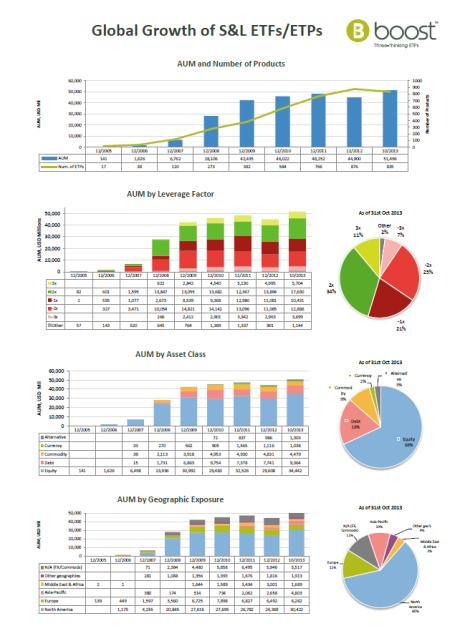Learn about CFDs ExchangeTraded Funds
Post on: 29 Июль, 2015 No Comment

Exchange-traded funds (ETFs) are investment funds traded on stock-markets. They are not mutual funds yet they offer all of the benefits of diversification that you would expect from a mutual fund. ETFs also enjoy all of the benefits of liquidity that you have from trading individual shares.
ETFs offer instant diversification because when you purchase one, you invest in a fund that buys and holds multiple assets. ETFs are like baskets into which fund managers place various assets such as stocks, bonds and commodities. When you buy an ETF, you buy ownership of a basket and its contents, not piecemeal ownership of the individual contents.
ETFs are potentially lucrative because as the value of the assets within the basket increases so too does the overall value of the basket. Yet, obviously, quite the opposite can still occur. If a sufficient number, or all, of the assets lose value, then this will pull down the overall worth of the basket.
Trading ETFs offers many benefits and in this section we will look at:
Instant Diversification
ETFs give you the ability to simultaneously invest in multiple assets without having to purchase each individually. That saves substantially on trading costs as well as on the capital you would need to buy each individual stock within an ETF that corresponded to an index, like the S&P 500.
Diversification also helps to protect against unsystematic risk. If you own just one of the stocks in the FTSE 100 and that stock loses ground, then you will lose money. Yet if you own the entire FTSE 100 via an ETF, and that same stock loses ground, the other 99 stocks are likely to ensure that the cumulative value of the entire index-linked ETF either remains stable or climbs higher.
Many popular ETFs track broad market indices, and these are just a few examples:
- S&P 500
- Dow Jones Industrial Average
- FTSE 100
- DAX Index
- Nikkei 225
- FTSE/Xinhua China 25 Index
- NASDAQ 100
- CAC 40 Index
Many ETFs also track various market sectors such as the following:
- Information technology
- Energy
- Materials
- Industrials
- Telecommunication
- Utilities
- Health care
- Financials
Free Trading
ETFs are freely traded on stock exchanges just like regular shares. As long as exchanges trading ETFs are open, you can trade in them, which is a distinct advantage over mutual funds. Mutual funds are not freely traded.
If you see ETF values rise or fall during the trading day, you can buy or sell them to take advantage of the price movement. In contrast, mutual funds are only traded at the end of the market day once all of the component assets can be valued. At that point, the mutual funds are assigned a closing value for the day and they may then be traded at this closing value. Unfortunately, this means that, during the trading day, you must hold onto mutual funds regardless of how they are performing. Whilst the sheer breadth of the shares included in a mutual fund may make sudden and significant losses unlikely, the fact that mutual funds cannot be traded freely could, in certain circumstances, be a disadvantage.
Stop-Loss Orders
You can protect ETF trades with stop-loss orders that will exit trades during the trading day when pre-determined prices are realised. Mutual funds, in contrast, would not give you this option because they are only bought and sold at the end of the trading day after the markets have closed.
So it is important to remember that stop-loss orders are an appropriate risk management measure on ETFs. Combined with intelligent diversification they will simultaneously protect your capital.
Lower Fees
We usually have to pay managers a fee to handle our investments, and that fee will largely depend on how active a role the manager plays.
ETFs usually involve lower fees because they are passively managed. This is because most ETFs track specific indices or market sectors, the composition of which rarely alters.
Yet many funds, such as mutual funds, are actively managed and thus attract larger management fees. Mutual fund managers often make daily decisions regarding portfolio content. This hands-on management, together with the trading fees generated by the execution of each trading decision they make, boosts the fees that they will earn — and charge.














